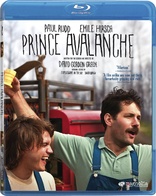Prince Avalanche Blu-ray Movie
HomePrince Avalanche Blu-ray Movie 
Magnolia Pictures | 2013 | 94 min | Rated R | Nov 12, 2013Movie rating
6.2 | / 10 |
Blu-ray rating
| Users | 4.5 | |
| Reviewer | 4.0 | |
| Overall | 4.0 |
Overview
Prince Avalanche (2013)
Two highway road workers spend the summer of 1988 away from their city lives. The isolated landscape becomes a place of misadventure as the men find themselves at odds with each other and the women they left behind.
Starring: Paul Rudd, Emile Hirsch, Lance LeGault, Joyce Payne, Gina GrandeDirector: David Gordon Green
| Drama | Uncertain |
| Comedy | Uncertain |
Specifications
Video
Video codec: MPEG-4 AVC
Video resolution: 1080p
Aspect ratio: 2.40:1
Original aspect ratio: 2.39:1
Audio
English: DTS-HD Master Audio 5.1 (48kHz, 16-bit)
Subtitles
English SDH, Spanish
Discs
50GB Blu-ray Disc
Single disc (1 BD)
BD-Live
Playback
Region A (locked)
Review
Rating summary
| Movie | 3.0 | |
| Video | 4.5 | |
| Audio | 4.5 | |
| Extras | 3.0 | |
| Overall | 4.0 |
Prince Avalanche Blu-ray Movie Review
Burnout
Reviewed by Michael Reuben November 10, 2013After three studio films, only one of which, Pineapple Express, proved successful, director David Gordon Green returned to his independent roots with Prince Avalanche, a stripped-down affair that Green called a "palette cleanser". Shot in less than two weeks, with two main actors and a four-person crew, the film restored Green to the minimalist, allusive style that first attracted critical and festival attention with George Washington (2000) and All the Real Girls (2003). It also freed Green from studio oversight and allowed him to make the kind of film he obviously prefers, which concerns itself more with exploring oddball characters than with working through plot mechanics. A friend introduced Green to an obscure Icelandic film named Either Way (Á annan veg) by writer/director Hafsteinn Gunnar Sigurđsson, which was little seen even in its homeland. Green immediately recognized a kindred spirit. Working only from subtitles, he transposed the story to his native Texas. He already had a specific location in mind: Bastrop State Park in central Texas, where raging fires in 2011 had destroyed 98% of the forest and over 1600 homes. There Green could recreate the surreal sense of dislocation and isolation that he'd observed in Either Way's use of the bleak Icelandic countryside. Of course, the time period had to remain in the Eighties. The kind of isolation on which both films depend wouldn't be possible in the present era of permanent connectivity. I haven't seen Either Way, but Prince Avalanche has been described as an unusually faithful remake. Still, Green left room for the serendipitous. An entirely new character was found during location scouting, and her appearance, though brief, changes the film's emotional temperature. In an equally brief appearance, the late Lance LeGault, to whom Prince Avalanche is dedicated, jolts the film awake with a presence (and I am using the word deliberately) that is uniquely American.

The odd couple (as Green likes to call them) at the center of Prince Avalanche are Alvin (Paul Rudd) and Lance (Emile Hirsch), who, in 1988, are restoring painted yellow highway lines and reflectors in an area of burnt-out forest. An opening screen of text describes a fictional disaster of widespread fires the previous year. Alvin has the job, but he has hired Lance as an assistant, because he is the younger brother of Madison, the single mom Alvin is dating, whom we never see, although we hear her voice on the phone (supplied by director Lynn Shelton). Though Alvin professes to love Madison and sends her money, he also cherishes solitude and self-sufficiency, which is why he has taken this job. As he writes to Madison, he cannot believe that her brother has grown to young adulthood without acquiring any of the basic skills required for survival in the wilderness. It's apparent that Alvin considers himself a modern-day Thoreau, who doesn't want his life frittered away by details and has sought out this landscape to help him "simplify, simplify". But why, then, does he care when Lance writes in his vintage comics? What difference does it make what music Lance plays on the boom box? If Alvin is so confident in the rightness of his approach to life, why does he find Lance's longing for the city so threatening? And what does Madison think about all this? We only hear Alvin's letters (in voiceover), never hers. Lance, by contrast, is the epitome of hormonal shallowness. His primary concern is getting laid, and to hear him talk, he should have no problem in that department. But his account when he returns from a weekend in the city is full of reversals and near-misses suggesting that his social behavior is governed by the same clueless indifference that he routinely displays around Alvin. Among other things, his intended target was his best friend's recent ex. As these two mismatched co-workers bicker, bond (but only tentatively), share stories from their past and do manage to get some work done, they elicit different aspects of each other, and Green stands back and lets his camera record what happens. He doesn't appear to have directed the actors in detail; instead, he let's them discover Alvin and Lance for themselves. Two additional characters appear to challenge the perspectives of Alvin and Lance, and also to energize Prince Avalanche and suggest additional layers to the experience of these co-workers without explicitly defining what they are. The first is Lance LeGault's nameless truck driver, who passes Alvin and Lance on the road from time to time, and always stops to hand out beers spiked with what is probably moonshine. A plainspoken and direct soul, the trucker is given to blunt observations (like telling Alvin that he looks "stupid" smoking a cigar) and odd bits of advice (like "never sleep with the same woman more than three times"). Eventually you can't help but wonder whether he's real or some messenger sent from who-knows-where—maybe the future, where Lance's older self is trying to warn his younger one about missteps he can avoid. (There is absolutely no basis for this notion in the film, but Prince Avalanche tends to prompt such speculations.) The other character is an elderly lady (Joyce Payne) upon whom Alvin chances during one of his solitary walks. She is digging among the charred ruins of what was once her home looking for something, anything, that might have survived the fire as a memento of her former life. The scene is sad and moving, but Green has also edited it to make it surreal by separating the voices from the action, so that the dialogue is heard in voiceover while the characters do not appear to be talking. Is the conversation really happening? It appears to be, but a brief scene near the film's end suggests a supernatural element. Prince Avalanche does not so much conclude as come to an end. One often gets the sense with Green that he hates the closure that comes with traditional conclusions, as if he can't stand cutting off future possibilities. Green wouldn't want to predict where Alvin and Lance will end up in ten years. He's only interested in watching them deal with where they are now.
Prince Avalanche Blu-ray Movie, Video Quality 
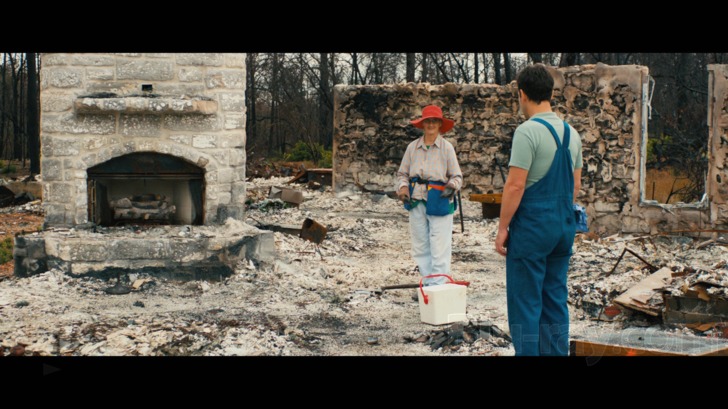
According to Green's commentary, Prince Avalanche is his first feature to be photographed digitally, using the Arri Alexa. The cinematographer was his longtime collaborator, Tim Orr (Seeking a Friend for the End of the W orld). The result, after color-correction and post-production on a digital intermediate, has produced a superior 1080p, AVC-encoded Blu-ray from Magnolia Home Enterainment. The image is crisp and sharp, detail is plentiful, black levels are excellent, and the color palette makes exceptional use of the contrast between the earth tones of the gradually returning forest vegetation and the red, white and blue wardrobe favored by Lance (and, to a lesser extent, Alvin). Orr's compositions are frequently worth pausing to admire, and there are only occasional traces of video noise and banding (almost always on dissolves to black) to detract from the viewing experience. The average bitrate is a generous 29.94 Mbps. Magnolia continues to outshine many of the major studios when it comes to allowing its features the maximum room to "breath".
Prince Avalanche Blu-ray Movie, Audio Quality 
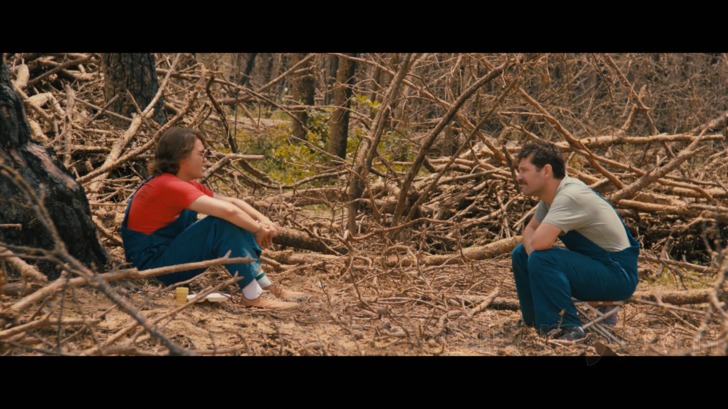
Prince Avalanche is a dialogue-driven film, and its lossless DTS-HD MA 5.1 track isn't particularly showy. The burnt-out forest that is gradually reawakening has a subtle ambiance, and certain specific sounds—an approaching or departing vehicle, a bird flapping away, etc.—utilize the multi-channel system's capability for directional effects. But other than rendering the dialogue clearly, the soundtrack's primary function is the soulful reproduction of the distinctive soundtrack by Explosions in the Sky and David Wingo.
Prince Avalanche Blu-ray Movie, Special Features and Extras 
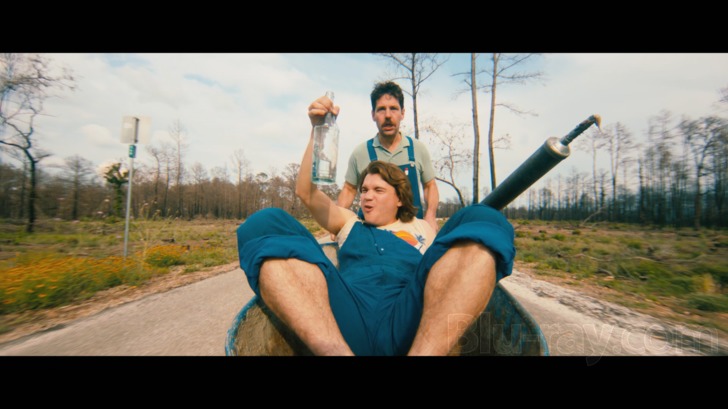
- Commentary with Director David Gordon Green, Set Production Assistant Hugo Garza and Talent Driver Paul Logan: Green begins the commentary with Logan, then sends him out of the room at about the half-hour mark in exchange for Garza, only to summon him back later. It's not clear whether he's serious when he asks them to dish on Hirsch and Rudd, but what he gets from both is the unbridled enthusiasm of young hopefuls who clearly want to work in the film industry and are willing to take any job to be on the set with an established director. (In the case of Garza, his job was craft services.) When they try to ask Green serious questions, such as the meaning of the title, which Green says came to him in a dream, he is evasive. Along the way, Green does reveal a few items almost inadvertently, e.g., his obvious distaste for the wastefulness of Hollywood filmmaking, where dozens of people stand around waiting for each operation and moving the production company takes hours. But anyone looking for genuine insight into Prince Avalanche will be disappointed.
- Deleted Scene: Do the Dance (1080p; 2.40:1; 0:30): A brief moment of Lance practicing his moves.
- Paul & Emile (1080p; 1.78:1; 6:55): Green, Rudd and Hirsch discuss the process of developing the characters and their relationship. Producers Craig Zobel and Lisa Muskat also participate.
- From the Ashes (1080p; 1.78:1; 9:29): This featurette opens with figures regarding the 2011 fires that ravaged most of Bastrop State Park and destroyed over 1600 homes. According to Green, he saw the landscape before becoming aware of the Icelandic film Either Way, of which Prince Avalanche is an adaptation. Green, Zobel and Muskat discuss the freedom of working independently.
- Lance LeGault (1080p; 1.78:1; 4:41): "Like a tornado" is how Rudd describes the single most vivid presence in Prince Avalanche. Hirsch adds his recollections, and Green recounts how he met LeGault (a more detailed version appears on the commentary track).
- Interview with Paul Rudd and Emile Hirsch (1080i; 1.78:1; 6:47): "Could I take longer with the pauses in answering this question?" asks Rudd at the end. It's a very informal interview.
- Interview with Writer/Director David Gordon Green (1080i; 1.78:1; 5:02): This interview is a compact and efficient summary of points that Green makes at greater length elsewhere. One can skip most of the other extras after playing this one.
- AXS TV: A Look at Prince Avalanche (1080i; 2.40:1; 3:32): This typical AXS TV promo expands the trailer with excerpts from the two interviews listed above.
- Theatrical Trailer (1080p; 2.40:1; 2:20): The trailer is edited to highlight the absurdist comedy, but it doesn't capture the more elusive dramatic elements.
- Also from Magnolia Home Entertainment: The disc includes trailers for Drinking Buddies, I Give It a Year, Syrup and Touchy Feely, as well as a promo for AXS TV. These also play at startup, where they can be skipped with the chapter forward button.
- BD-Live: As of this writing, attempting to access BD-Live gave the message "Check back later for updates".
Prince Avalanche Blu-ray Movie, Overall Score and Recommendation 
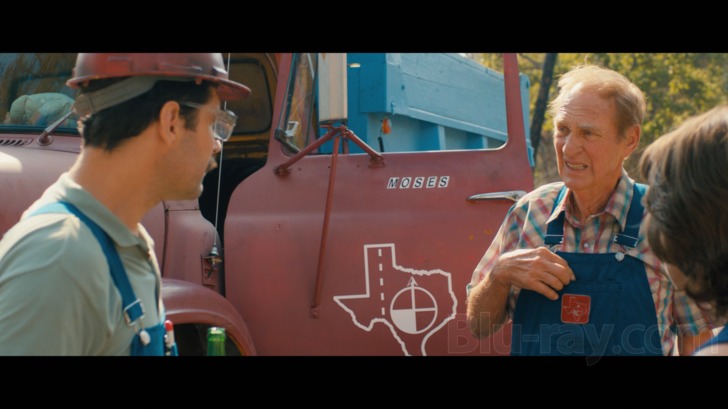
Green's style of filmmaking isn't for everyone, and if all you've ever seen is Pineapple Express, Your Highness or The Sitter—or even, for that matter, the Green-directed episodes of the HBO series Eastbound and Down—you won't know what to expect from Prince Avalanche. The latter wanders a winding path with an uncertain destination, or none at all, and establishes an idiosyncratic rhythm that will be hypnotic for some and soporific for others. On the technical merits, the Blu-ray is recommended, but the content is a tougher call. Worthwhile, but not on a blind buy.
Similar titles
Similar titles you might also like

Certain Women
2016

Frances Ha
2012

The Forbidden Room
2015

Cemetery of Splendor
2015

While We're Young
2014

Girlfriends
1978

20th Century Women
2016

Mid90s
2018

First Cow
2019

I, Daniel Blake
2016

Old Joy
2006

Scarecrow
1973

Touchy Feely
2013

Starlet
2012

Norma Rae
35th Anniversary Edition
1979

Darling Companion
2012

Midnight Cowboy
1969

Is Anybody There?
2008

My Own Private Idaho
1991

I'll See You in My Dreams
2015
